News
Boko Haram Attacks: Overhaul Security Architecture Now, Labour Group Tells Buhari
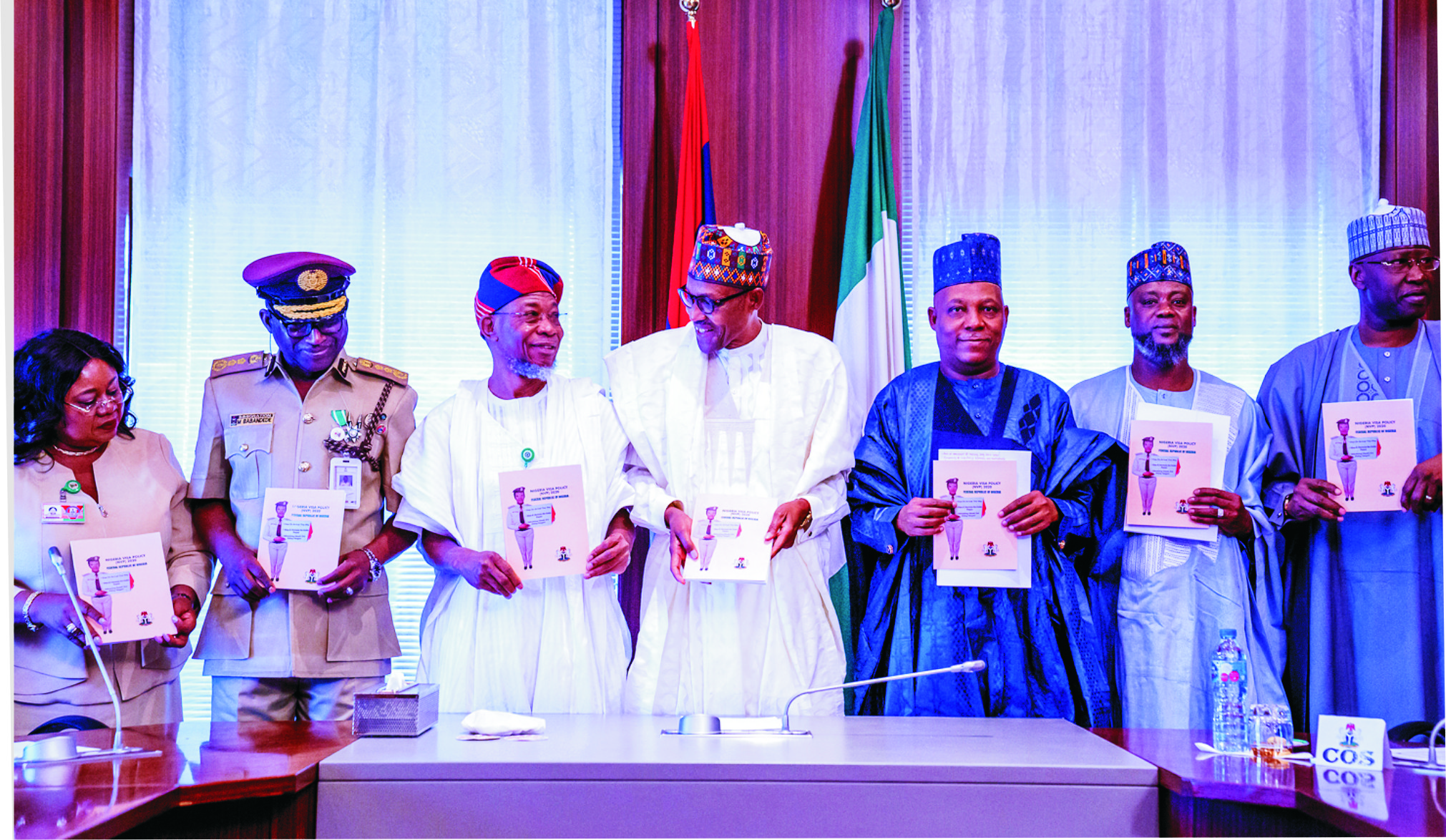
As the country’s security situation continues to get worse, the National Association of Academic Technologists (NAAT) has advised President Muhammadu Buhari, to as a matter of urgency, overhaul the nation’s security architecture in order to curtail the blood shade occasioned by insecurity.
The association has also advised the Federal Government to make it compulsory for vice-chancellors and other principal officers of the universities to publicly declare their assets at the time they were appointed and when leaving office.
Speaking at the 4th NAAT Delegates Conference, yesterday, with the theme, “The Role of Technologists in the Economic Diversification Policy of Government: A Look at the Agricultural Sector”, the National President of NAAT, Comrade Sani Suleiman said that the security situation in the country has become worrisome.
According to him, “There is no part of Nigeria where citizens can travel on our deplorable roads safely. It is either robbery, banditry, kidnapping for ransom, militancy or Boko Haram attacks.
“This cannot continue in our country. The authorities must rise up to the occasion by changing their tactics of handling security situation in the country.
“The service chiefs have done a great job for this country and we thank them for the service they have rendered to their fatherland. It is time they give way to vibrant young officers with fresh ideas. The government must as a matter of urgency, completely overhaul the security architecture of the country for a better result within a short time. “
On the appointment of vice-chancellors and other principal officers of the universities, Suleiman said that such an appointment must be made more transparent and be based on merit.
According to him, “Ability of VC candidates to attract funds for research and infrastructural developments should constitute a qualification requirement.
“A situation where a VC who was appointed and could not get resources to run the university but keep pushing to increase school fees through the back doors by introducing all sorts of charges on already impoverished students is not acceptable.
“VCs on appointment must be made to declare their assets and make them public to the university community and do same at the end of his or her tenure in office.”
The NAAT president called for the resuscitation of government technical colleges, alleging that so many of the government technical colleges have become moribund with dilapidated infrastructures.
He also said that everything must be done as quickly as possible to conclude the process of renegotiation of the 2009 Federal Government agreement with the association.
Meanwhile, President Muhammadu Buhari says his administration was fully determined to combat and defeat all acts of criminality, banditry and terrorism in the country.
In a statement in Abuja, yesterday, the President’s Senior Special Assistant on Media and Publicity, Malam Garba Shehu, said the president was speaking at a meeting with the Executive Committee members of the Nigerian Community in Ethiopia (NICE), in Addis Ababa.
The President appealed to all Nigerians to support and cooperate with security agencies who were ready to defend and preserve the unity of the country.
The meeting, moderated by Chairman/CEO of Nigerians in Diaspora Commission (NiDCOM), Mrs. Abike Dabiri-Erewa, had observed a minute silence in honour of Nigerians brutally killed by Boko Haram terrorists on Monday in Borno.
Buhari also assured Nigerians, at home and abroad, that their protection would continue to remain a key priority of his administration, in addition to the war against corruption and economic growth.
On economic matters and doing business in Ethiopia, the Nigerian leader said he had been briefed on the challenges faced by some Nigerian companies with investments in the country, especially the Dangote Group and Lubcon.
“I have directed the relevant ministries to take up these issues with a view to resolving all complaints amicably with the Ethiopian authorities,” he said.
On the issue of Diaspora voting, the President while responding to a request by the leader of NICE, David Omozuafoh, said he was in support of it, but legislation was required to make it a reality.
“I have said it severally that I am not against it. However, you will need to convince National Assembly to amend the relevant laws to make Diaspora voting a reality,” he said.
On the conduct of Nigerians living in the Diaspora, the President expressed concern that some of their actions had not projected the country in good light, urging them to change their ways and obey the laws of their countries of residence.
He, however, commended Nigerians in Ethiopia, noting that they had the highest concentration of professionals working in international organisations such as the African Union, United Nations agencies.
“This is a correct representation of the Nigerian spirit of excellence and high achievement,” he stressed.
Buhari told the meeting that his government was committed to supporting and protecting all law-abiding Nigerians, at home and abroad, to prosper, urging all in the Diaspora to help achieve this by being good citizens and worthy ambassadors of Nigeria.
The President also encouraged them to be the best in all their legitimate engagements in their host country, saying that, “while you are out in the Diaspora, do not forget home as you represent some of the best human assets that Nigeria possesses.”
He, therefore, urged them to use their resources, skills and talents to help the development of Nigeria.
In his remarks at the meeting, Nigeria’s Ambassador to Ethiopia and Permanent Representative to the AU, Bankole Adeoye, extolled the huge investments of the Federal Government of Nigeria in Ethiopia since independence through the Embassy.
He described the Nigerian Embassy in Addis Ababa as one of the Nigerian missions in the whole of Africa with the largest diplomatic and residential premises.
“Nigeria has continued to live the saying that Africa is the centre-piece of her foreign policy especially with the many impacts in the AU, the United Nations Economic Community for Africa (UNECA) and Ethiopia as whole,” he said.
The Ambassador commended Buhari for reciprocating the visit to Abuja of the former Prime Minister of Ethiopia given the country’s zeal to develop stronger ties with Nigeria.
He further extolled the President as one who has appointed the highest number of career ambassadors and attributed it to his flair for professionalism.
Also speaking, the President of NICE commended the President for the establishment of NiDCOM and his continuous leadership and contributions which have cemented Nigeria’s role as a central player in strengthening the AU.
Omozuafoh appealed to the Nigerian government to fast-track the implementation of the MoU with the United Nations on the Junior Professionals Programme allowing young Nigerians access to opportunities in international organisations.
“Similar opportunities should be explored with the UN Volunteers Programme, the AU Volunteers Corps as well as the ECOWAS Youth Volunteer Programme, “ he said.
News
Kano Gov Congratulates NUJ At 70

Governor Abba Yusuf of Kano State has congratulated the Nigeria Union of Journalists (NUJ) on its 70th anniversary.
The governor acknowledged the NUJ’s vital role in strengthening democracy and promoting accountability in governance.
This is contained in a statement by the governor’s spokesman, Sunusi Dawakin Tofa in Kano, yesterday.
The governor lauded the NUJ for its unwavering commitment to ethical journalism and nation building.
He commended the union’s leadership, led by Mr Alhassan Yahya Abdullahi, for advancing press freedom and advocating for journalists’ welfare.
“The NUJ has been instrumental in shaping Nigeria’s narrative, promoting democracy and ensuring accountability in governance.
”The Kano state government recognises the critical role of the media in our democracy and will continue to support and collaborate with the NUJ to uphold a free and independent press,” he stated.
Yusuf urged journalists to continue to uphold professionalism, integrity and objectivity.
He reaffirmed his administration’s commitment to fostering a strong partnership with the union, while ensuring that the media remained a pillar of democracy in the state and the country at large.
“Once again, congratulations to the NUJ on this remarkable achievement. May the next 70 years bring even greater successes and accomplishments for the union and its members,” he stated.
News
Monarch Lauds Fubara On Enduring Peace, Installs Three Chiefs In Ngo
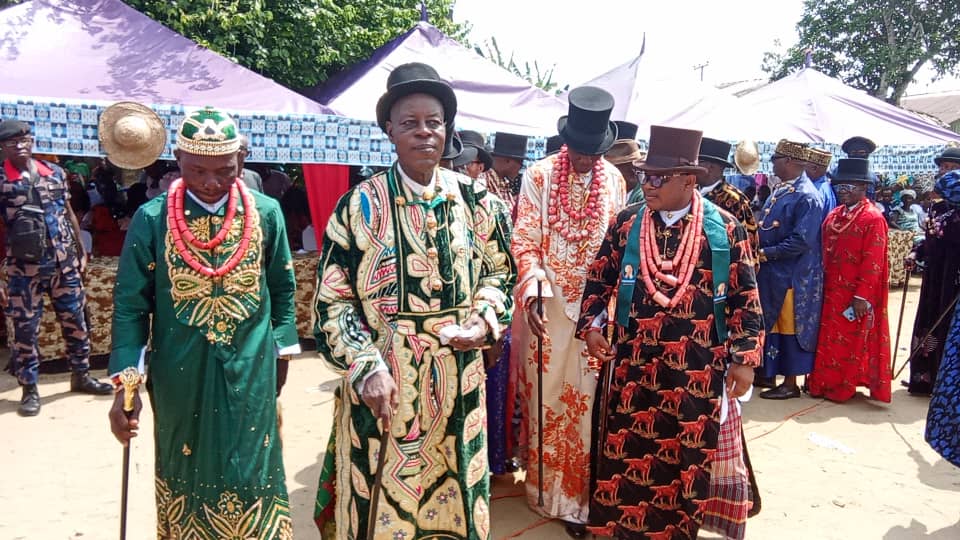
The Village Head of Ngo in Andoni Local Government Area of Rivers State, King Dogood Ngere, has commended the Rivers State Governor, Sir Siminalayi Fubara, for his peaceful disposition and leadership qualities in the State.
King Ngere has also appealed to the governor and the Minister of the Federal Capital Territory, Nyesom Wike, to resolve their differences and work together for the interest of peace and development of the State.
The monarch stressed the need for the two leaders to put Rivers State interest above personal interest and reconcile their differences.
He said Fubara’s decision to implement the Supreme Court judgement shows that he is a man of peace and appealed to the Rivers State House of Assembly led by Rt Martin Amaewhule to work with the Executive to move the State forward.
The traditional ruler stated this shortly after he installed three chiefs at his palace in Ngo Town.
The three chiefs are Chief Daniel Dimkpa Nelson of Ebirien Ngere family, Chief John Biboh John of Ngor Egbesi family, and Awajimotumu Ukot Idawaji as chief of Ida Awaji family.
Addressing the new chiefs after their installation, King Ngere charged them to see themselves as role models for their individual families, stressing that as chiefs, it behoves them to be exemplary in their conducts.
According to the traditional ruler, the new chiefs must not only work for the peace of their families but Ngo community in general.
King Ngere also advised members of the three families to give their chiefs the desired respect while also supporting them to succeed.
He commended Governor Fubara for his numerous developmental projects in Andoni, particularly the ongoing Ngo/Oyorokoto Road, saying that when completed, the road will open up economic opportunities in the area.
Also speaking at the occasion, the Secretary of the Egweoke Council of Chiefs, Chief Awajiokan Mbosowo Ukumor, described the installation ceremony as a big success.
He said the three chiefs fulfilled all the conditions for their installation and are therefore admitted as members of the Ngo Council of Chiefs.
The ceremony was attended by people from various walks of life.
News
NDLEA Seizes Large Consignments Of Skunk, Heroin Across Six States, FCT

The National Drug Law Enforcement Agency (NDLEA) has seized large consignments of skunk, heroin, and other opioids in raids across Kano, Kwara, Kaduna, Taraba, Abia, Osun, and the Federal Capital Territory (FCT).
NDLEA’s Director, Media and Advocacy, Mr Femi Babafemi, disclosed this in a statement issued to newsmen in Abuja, yesterday.
Babafemi said that in Kano, a total of 727 blocks of compressed skunk weighing 479kg were recovered from a 40-year-old suspect.
According to him, the suspect was arrested by operatives of the NDLEA at the Chalawa area of the state on March 12.
He added that no fewer than 58,300 pills of tramadol were also intercepted along Kabba-Obajana highway, Kogi, in a commercial bus coming from Lagos, enroute Abuja on March 11.
He added that raid operations in Kachia, in Kaduna on March 13, led to the arrest of a 21 year-old suspect, with 4,900 pills of tramadol 225mg seized from him.
Babafemi said that a similar exercise in the Hayin Banki area of Kaduna North Local Government Area (LGA) on March 14, also resulted in the arrest of another 25-year-old suspect.
According to Babafemi, 2,900 tablets of tramadol 225mg was also recovered from him.
“A total of 40,200 tablets of tramadol 225mg were recovered from the duo of Olowoko Faruk and Akeem Ridwan along Ilorin – Jebba expressway, Bode Saadu, Kwara, on Friday, March 14.
“The NDLEA operatives equally seized 21,700 capsules of same opioid from a suspect, along Eiyenkorin expressway, Ilorin on Thursday, March 13.
“Also, in Taraba, NDLEA officers on Friday, March 14, another 30-year-old suspect, at Bente Road, Kurmi LGA, with 15.77kg of skunk,” he stated.
Speaking further, he noted that agency operatives had also on March 13 in Osun, intercepted a commercial bus with registration number, SGB 564 YS coming from Idumota, Lagos Island.
According to him, the NDLEA operatives recovered a total of 48.7kg Ghanaian Loud, Colorado and Canadian Loud, all strains of cannabis.
“Not less than nine suspects have been arrested in connection with the seizure in Osogbo and Ile-Ife during follow up operations.
“A 58-year-old suspect was on March 11, arrested along Gwagwalada expressway, Federal Capital Territory (FCT) Abuja, with 27,800 pills of tramadol 225mg.
“Another 26 year old suspect sold was nabbed same day with various quantities of skunk and cocaine at Wuse zone 3 area of Abuja.
“In Abia, NDLEA operatives had also on March 15, raided the Ntigha community, Isiala-Ngwa North LGA, where a 34-year-old suspect was arrested.
“Operatives recovered from him, 274grams of heroin, 141grams of methamphetamine, 2.931kg of cannabis sativa, four grams of cocaine and N753,015 monetary exhibit,” he said.
-
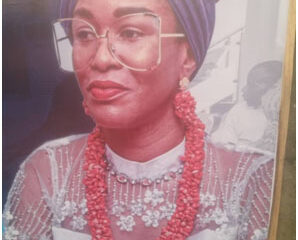
 News12 hours ago
News12 hours agoEx-Council Boss Hails Fubara On OGS Remodelling
-
Politics16 hours ago
I’m Focused On Governance, Not Idle Talks – Gov Sani
-
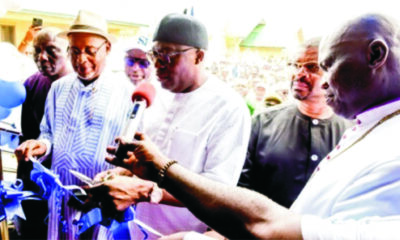
 City Crime12 hours ago
City Crime12 hours agoPrioritise Rivers’ Interest, Fubara Tells RSHA
-

 Oil & Energy15 hours ago
Oil & Energy15 hours agoFG Assures Increased Investments In Oil Industry
-

 News11 hours ago
News11 hours agoAbalama Reception: A Sinister Plot To Incriminate Us -Asari Dokubo
-
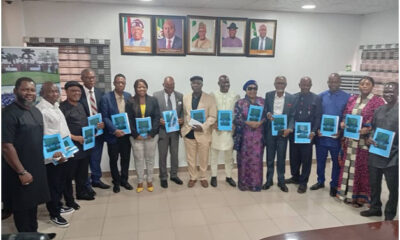
 News12 hours ago
News12 hours agoHYPREP’s Centre Of Excellence Construction Hits 80% Completion Rate
-
Politics16 hours ago
Speaker Felicitate Journalists As NUJ Clocks 70
-

 Rivers11 hours ago
Rivers11 hours agoActivist Underscores Need For More State Constituencies In Rivers

